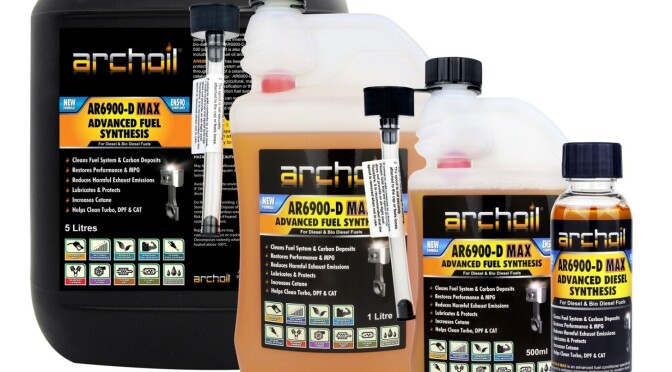The overall quality of diesel fuel is dependent on several factors. These include BTU value, viscosity, pour flow point, aromatic and paraffinic content, and resistance to contaminant buildup such as water and bacteria. A diesel fuel’s quality also is very dependent on its cetane number.
The cetane number (CN) is an index of the ignition point or combustion quality of diesel fuel and is measured using an ASTM D613 test. Standard European BS EN590 diesel from the pump typically has a minimum cetane number of around 51, with premium pump diesel a little higher. Depending on engine design, driving conditions, and so on, the optimum cetane value for most vehicles is around the mid to high 50s. Any value greater than 60 will not achieve any additional benefits and, in most cases, will alter ignition timing to the degree that power is lost.
Matching cetane to the engine is essential to maximize the engine’s performance. Biodiesel fuels in particular, especially homemade brews, usually start with a much lower cetane number, so cetane improvement for these fuels is essential.
A fuel with too low of a cetane number for a particular engine will result in reduced cold-start ability, rough running, excess engine noise/vibration, and reduced combustion quality. This leads to reduced performance, excess emissions, and carbon buildup throughout the engine and emission system components (intake, EGR, DPF, etc.)
A higher cetane fuel that is a proper match for the engine will reduce ignition delay, improve overall combustion quality, liberate more BTU (energy) from the fuel, and improve performance and MPG. It also will reduce engine noise, deposit buildup, and exhaust emissions.
What should I look for in a cetane booster?
Contrary to some propaganda, alkyl nitrates still offer the most significant improvement in cetane number, with measured increases of up to eight points. When it comes to alkyl nitrates, 2-Ethylhexyl nitrate (2-EHN) is the most popular and most respected. It offers a more consistent ignition quality while reducing unwanted and adverse combustion conditions.
Fuel additive manufacturers recognize the benefits of boosting the cetane number and using 2-EHN so much now that most offer cetane improvers. The question in this case is, what are you getting for your money?
From a close examination, it appears many cetane boosters contain useless fillers. Most manufacturers still insist on the single bottle per tank philosophy to maximize profits. Some 200-300ml bottles that treat a single tank of fuel have as little as 20% active ingredients. This is lucrative for the manufacturer but not a good value for the consumer. Therefore, it is important to understand what you are getting for your money.
The optimum amount of 2-EHN is around 20-100ml per tank of fuel, depending on the engine and base cetane level. As 2-EHN can reduce lubricity, a lubricant must be blended in. To ensure you are getting the best value, ensure the product contains 2-EHN as its base, and a reasonable proportion of the remainder contains beneficial ingredients, such as lubricant, detergent, etc.
UPDATED AUG 2022 – So what do we recommend and why?
Active cetane improvers are essentially a form of fuel modification, or more accurately, combustion modification. However, when combined with the correct fuel catalyst technology and lubricity additives, they can turn the most mediocre pump fuels and biodiesels into super diesel that will outperform the best premium pump fuels.
Two products to note:
Oilsyn® Diesel Race DNA and Archoil® AR6900-D MAX. Rather than introduce another diluted cetane booster, they released a concentrated chemistry product containing 100% active ingredients. They deliver optimum increases in cetane while being able to treat multiple tanks of fuel rather than just one.
Diesel Race DNA contains the highest levels of 2-EHN of any compound diesel conditioner and the highest performing diesel lubricant on the market at this time, with an HFRR test of below 180! AR6900-D is a careful balance of cetane improver, detergent, lubricant and combustion catalyst. Both protect the entire fuel system against the harmful effects of low lubricity and low sulphur fuels. This results in an optimum combustion condition, comprehensive fuel system protection and cleaning, increased performance, and reduction in harmful exhaust emissions.
Summary:
For the ultimate performance and protection – use Oilsyn Diesel Race DNA.
For an all-around product that increases cetane, cleans and protects – use Archoil AR6900-D
Either of the above work out cheaper per tank than upgrading to premium diesel at the pump.



 categories
categories